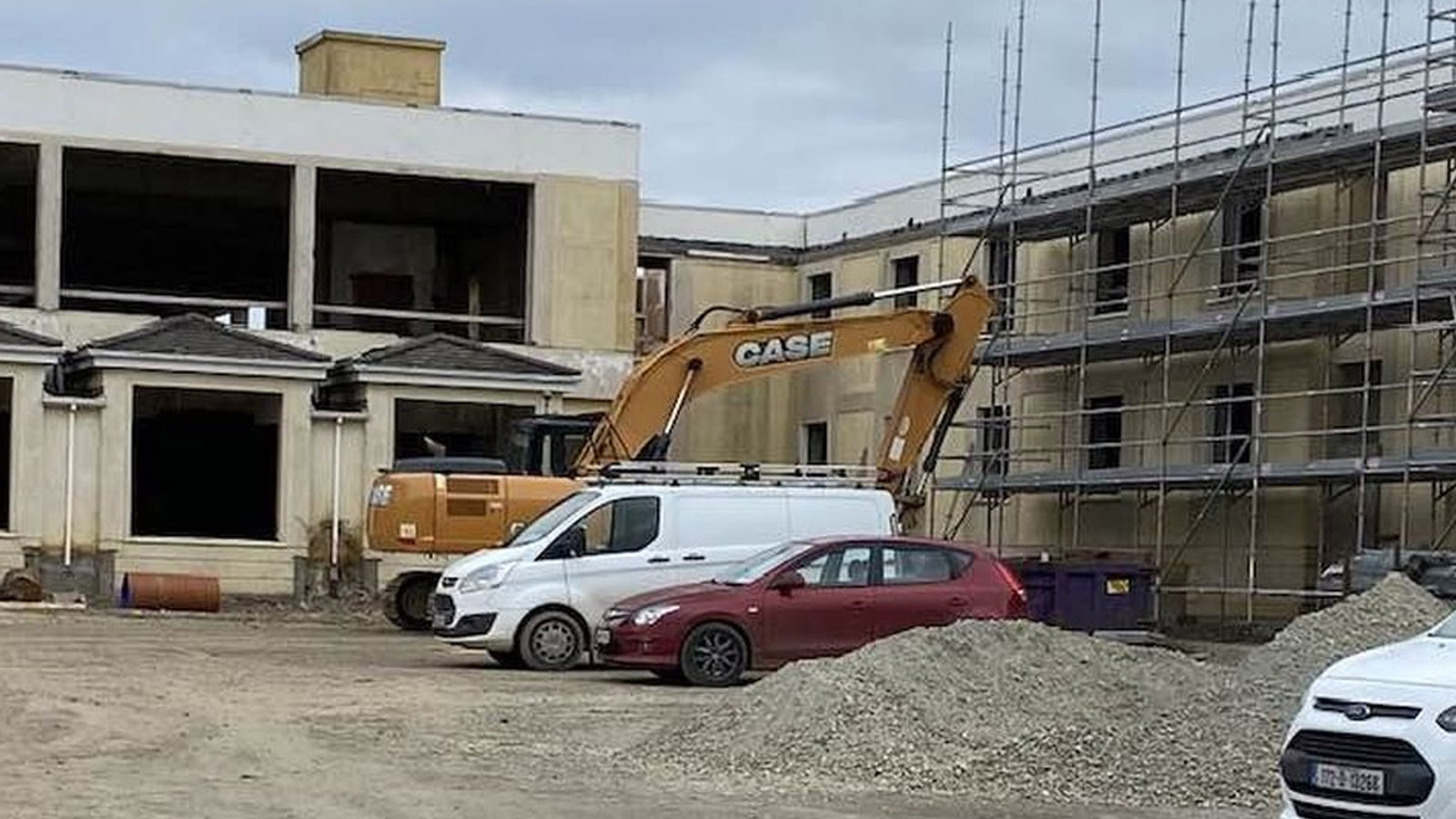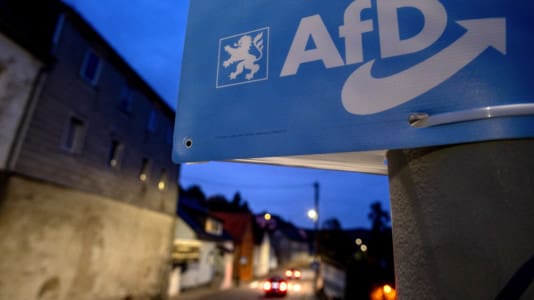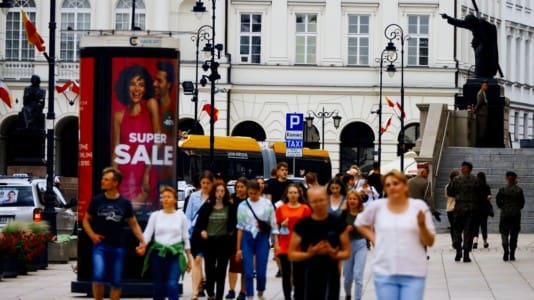A derelict hotel in Ireland that had been earmarked to be converted into a nursing home will now be used to accommodate an initial 170 adult male asylum seekers — and that figure could quickly rise to 400.
The Department of Integration confirmed on Monday that the former Great Southern Hotel site located in Rosslare Habour would be transformed to house migrants and the new arrivals will be in place in a matter of weeks.
“We anticipate that the building will be ready by the end of the month and that approximately 170 people will be in a position to move in as part of a phased move,” an email sent by the Green Party-led governmental department to local elected officials read.
“It is likely to be male adults in this first phase given the shortage of accommodation for this cohort,” the circular added.
The Irish integration department assured local officials that the accommodation would be “of a high standard” and “well-managed,” and vowed to disclose further details about the plans “as soon as possible.”
The site was initially to be converted into a 90-bed nursing home, providing a vital service and generating employment opportunities for the local community, but these plans have now been scrapped.
Local councilors expressed their anger at the government’s decision to bestow on the village of just 1,200 residents further asylum seekers, having already established one refugee center in the local area.
It is too much to ask of a small community
Bernie lives in Rosslare Harbour in Wexford and she is concerned about the possibility of 400 refugees moving into the area #RTEUpfront pic.twitter.com/oW7uziPX64
— Upfront with Katie Hannon (@RTEUpfront) November 6, 2023“It’s disappointing and devastating for Rosslare Harbour, there’s no doubt about it,” said local councilor Ger Carthy as cited by the Irish Independent newspaper.
“Between the amount of refugees that we have currently in Rosslare Harbour and what’s planned for the Great Southern site, it will mean that this village will have taken in over 700 refugees. That will add about a third to the indigenous, settled population, with no additional services or provisions made,” he added.
Hundreds of local residents turned up to a community meeting last week, a meeting described by one councilor as the “biggest public meeting I can ever remember being at,” to protest against the plans.
Cllr. George Lawlor of Wexford Borough told the meeting that many of those concerned about the new arrivals were the very first volunteers to offer a helping hand to Ukrainian refugees upon their arrival to the village last year, but they’ve now reached their breaking point.
[pp id=70515]
“The people who are ringing me with serious concerns about this are the same people who were standing in tents at 3 a.m. while the boats were coming into the harbor from Ukraine.”
“It’s the people who have helped those coming from Ukraine and those in the IPAS center who are saying, We can’t take any more because we’re at saturation point, we can’t take any more because it will evaporate all the goodwill that has been generated in this part of Co Wexford,” he added.
“The fact we’re potentially losing a nursing home is the biggest blow,” added Cllr. Frank Staples. “I spoke to a lot of older people at the time the nursing home got planning permission and they were delighted because it meant they would be able to stay in their community.”
Residents questioned how they were expected to cater to more newcomers when GP and dental services are already saturated and public services stretched.
[pp id=93647]
President of the Irish Freedom Party Hermann Kelly accused the Irish government of “actively discriminating against the Irish people” and urged voters at the next election to “tell them clearly that the national resources of Ireland should be for the people of Ireland.”
Reports from Rosslare Harbour have become commonplace across Ireland with the government overseeing record levels of immigration over the past two years.
Last week, residents of Coole in Co Westmeath protested government plans to send 100 migrants to their village of just 200 people, while the local community in Killarney also criticized plans to establish another migrant hotel in the area.
[pp id=97214]
Ireland’s population grew by almost 2 percent in a year after 141,600 immigrants entered the country between April 2022 and April 2023.
Prime Minister Leo Varadkar admitted last month that the country was reaching its capacity for the number of refugees it can accommodate and said that local communities would struggle to handle another influx of migration next year if the number of new arrivals remained as high as it is currently.
“We just don’t know if we’re able to provide that level of accommodation,” Varadkar told the lower house of the Irish parliament.





